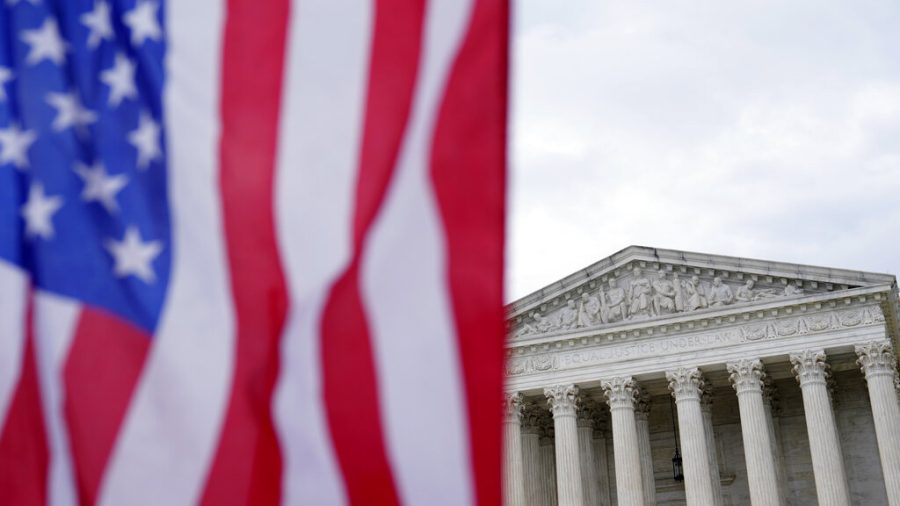Opinion: SCOTUS opinion on abortion has larger purpose
FILE – The U.S. Supreme Court, May 16, 2022, in Washington. (AP Photo/Mariam Zuhaib, File)
Opinions expressed in the Op/Ed section of The Knight Crier are not necessarily reflective of the views of the entire staff of the KC.
These circulating higher-up calls for a potential repeal of legal abortion access strengthen an evident reason as to why free citizens should not hand their governments the capabilities and powers to interfere with and control complex personal decisions. This potential decision at issue brings forth a facile resolution to matters, by definition, not found as a subject to standard measures of enforcement. Decisions to investigate these circumstances deemed necessary to do so with no justifiable backing, with a subsequent enforcement of a law criminalizing a woman’s reproductive decision in the face of this potential ban becomes an exercise with inherent authoritarian pretenses.
Considering in the hypothetical, yet not far-fetched to predict, realm of this country where abortion was criminalized, under what pretense would potential illegal abortions be investigated? Could search warrants be issued for computer, phone, and media companies to see what any potential reproductive medical advice was sought out? Would anyone close to this potential felon be subpoenaed in suspicion?
However ludicrous these examples may seem, they’re only appropriate due to the unclear status as to how states could bring about enforcing such laws unless they took such steps. Whenever a government has taken initiative to control the reproductive health of women, an astronomical degree of intrusion, surveillance, and even spying has been the end result
In the face of recent headlines, if Texas, acting as the forerunner in this surge of anti abortion legislation, demonstrates that if states offer newly imposed ideas of bounties, state legislatures could develop a ploy that individuals seeking rewards for hunting violators to freshly appointed anti abortion laws are not state actors themselves. If such notions find any legal backing, the Fourth Amendment would then prove its redundancy, as private bounty hunters would not be restricted by the amendment whatsoever.
Any attempts to refute America’s status as a police state with a true meaning of due process held dear is farce. When a police officer, or any prosecutor for that matter, in a red state searches for a “probable cause” in cases pertaining to a potential illegal abortion taking place, an elected state judge can issue a warrant. The technicalities of such would be procedurally accurate and on code, but since this soon-to-be appointed crime acts out in the semblance of a womb, mechanisms of such enforcement would be inherently intrusive. With that probable direction of where the future of this country is heading, any definition of a right to privacy becomes strikingly abstract, and fails to prevent such intrusions into the lives of others in any given scenario
The underlying intrusiveness of these forthcoming state laws proves to be vile when actualities induced by their effects are presented. This is pro-control. In the words of Elizabeth Warren in her address on the Senate floor last Tuesday, “Republicans are really after criminalizing women’s bodies.”












